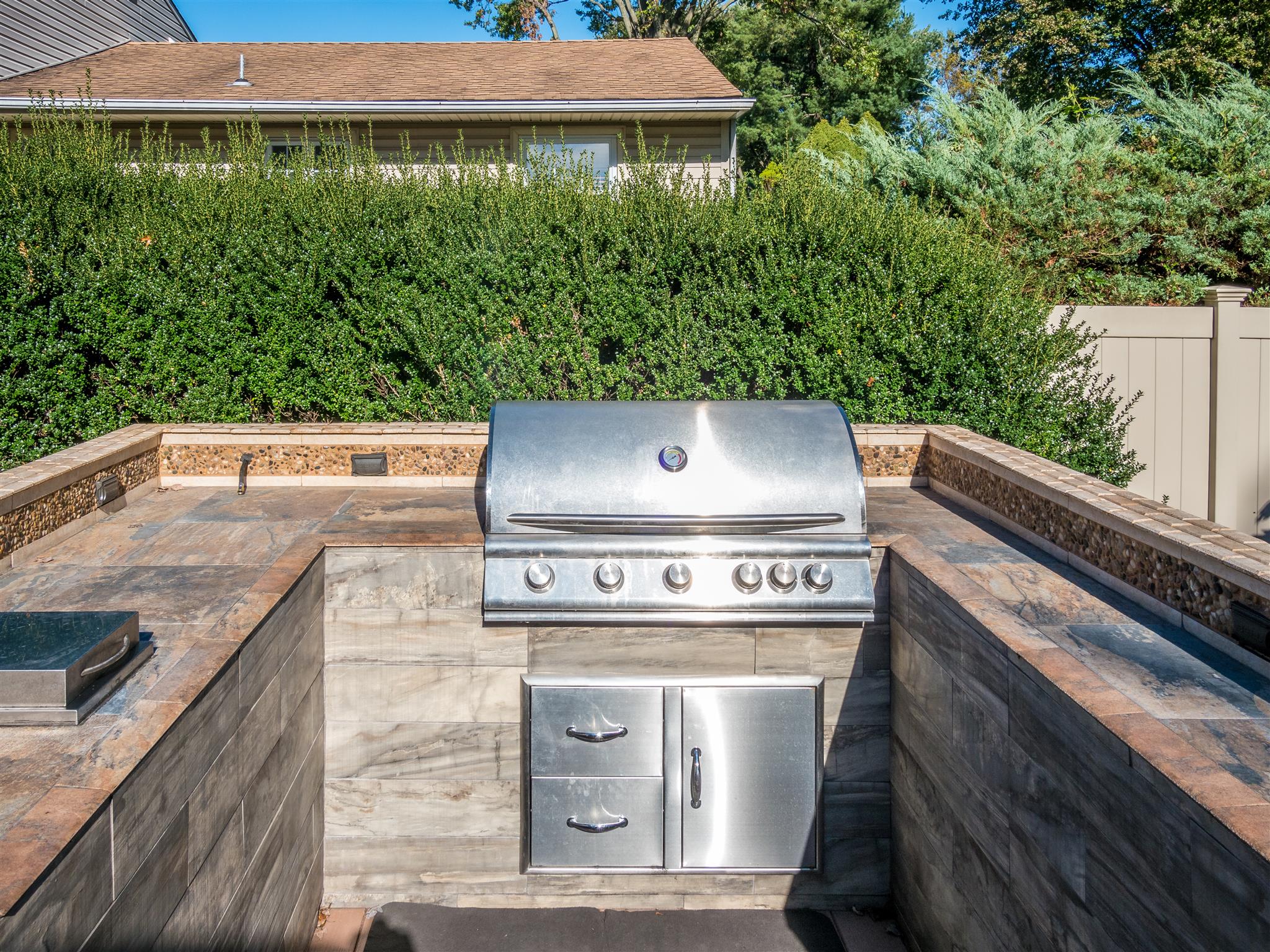Unwanted Guests? Keep Critters Away from Your Central Florida Outdoor Kitchen

Having a beautiful Central Florida outdoor kitchen is something that many people dream about. Being able to cook outside when it is just too hot to stay inside and turn on the oven is one of the great things about an outdoor kitchen. While there are many benefits to cooking outside with all the amenities of a kitchen, there are also some drawbacks. If you have an outdoor kitchen, then you may have had some issues with critters hanging around or bothering your kitchen at one time or another.
This is a pretty common problem simply because animals are drawn to food, and what better place to find food than a kitchen? An outdoor kitchen is also even easier for them to get to than a traditional kitchen. So, what should you do to make sure that the animals can’t get into your outdoor kitchen? We’ve compiled a list of tips to help you plan.
Avoid Storing Food Outside
The easiest way to avoid attracting nature’s unwanted guests? Don’t store food outside. No matter how well protected you may think it is, most animals will find a way to get it. That said, if you plan on using your kitchen a lot this season, that may not be an option. It can be a hassle to drag food in and out- isn’t that one of the reasons you built the outdoor kitchen to begin with? In that case, keep reading.
Install a Trash Drawer and Compactor
Keeping trash and food scraps locked away is critical. A trash drawer with a compactor built in will help you keep that fragrant garbage under wraps and securely hidden from those midnight raiders. You can just opt for emptying the trash can each night when cleaning up, but let’s face it- this is easily forgotten after a long night of entertaining.
Get Locks
Yes that’s right- some critters are so wily that only locks will keep them out. (Have you ever seen a raccoon pry cooler lids and trash cans open? We have!) Consider adding locks to your cabinet and fridge doors. Some of the child safety locks are very effective, yet low-profile so as not to detract from your kitchen’s design. When cleaning up at night, approach your outdoor kitchen like you would a camp site- make sure everything is locked up and secure and that food is stored in air-tight containers so as not to provide more temptation for night visitors.
Put a Cap on That Chimney
If you are still in the planning stages of your outdoor kitchen, there are a few design steps you can take now that will help keep your food safe and away from the animals while also keeping animals safe as well. The wood-burning stove or pizza oven is one area that should receive extra attention. For reasons unknown to us humans, critters like to climb into chimneys. If they smell food on the other side, this makes it even more tempting. By installing a cap on the chimney, you can keep the critters out while also keeping debris from falling into your chimney.
Clean Up
Finally, keeping the kitchen clean may sound basic, but it certainly makes a big difference. Have environmentally safe cleaners on hand to take care of spills and to clean up the countertops and appliances after use. Make sure everything is sealed away and cleaned thoroughly so unwanted pests will have no interest in your outdoor kitchen areas. At the end of the day, give everything a good wipe down to remove as much of that tempting food odor as possible. If the animals can’t smell food, they’re less likely to poke around.
What About Smaller Pests?
Keeping the bugs out of your outdoor kitchen is a much bigger challenge. While all of the above tips will also help deter insects, there are a few additional steps you can take.
- Chemicals and Traps – Poison? Nobody likes to think of it. But sometimes it may be necessary to use chemical pest control to keep your food and prep areas safe. Consider laying ant and roach traps inside cabinets where you keep food or drinks. You may need to also consider a mouse trap if this seems to be a problem. Avoid using broad distribution chemicals near a pool or garden area. Fly tape is also an effective chemical-free solution that can be easily tucked behind columns and walls so that it’s not on display.
- Bug Lanterns – Carefully position a bug lantern away from the main gathering and eating areas, but close enough to attract and condemn bugs so they will not bother your guests or get into food.
- Tiki Torches and Candles – These are actually attractive and also practical. Torches and candles provide lighting for your outdoor area, add a romantic ambiance, and also can keep pests away when scented with citronella or other natural oils used for pest control.
- Colanders and Covers – Always have a few colanders or food nets available to protect buffet dishes from pests. You are outdoors after all- there will be flies and gnats no matter what precautions you take.
- Mow the Lawn – Keeping your outdoor dining area clear of tall plants and grass can prevent a lot of bugs from setting up camp nearby. You can have attractive planters with some flowers and such, but be cautious about what types of plants you use so they do not attract too many bees or other insects. Catnip or rosemary can discourage many types of bugs from coming close.
- Blow Them Away – Installing several fans around your outdoor kitchen and dining areas can produce just enough wind to keep flying pests from coming anywhere near your guests. You can use outdoor ceiling fans, portable fans, and even vent fans if you like.
